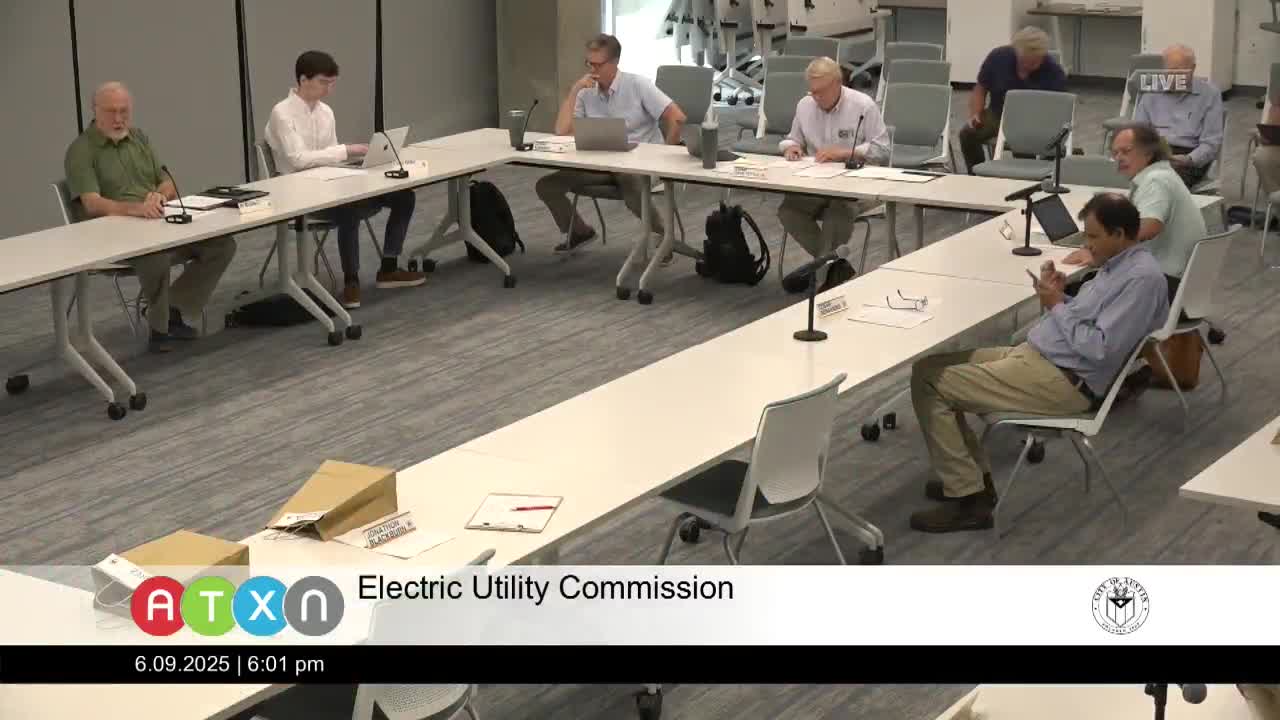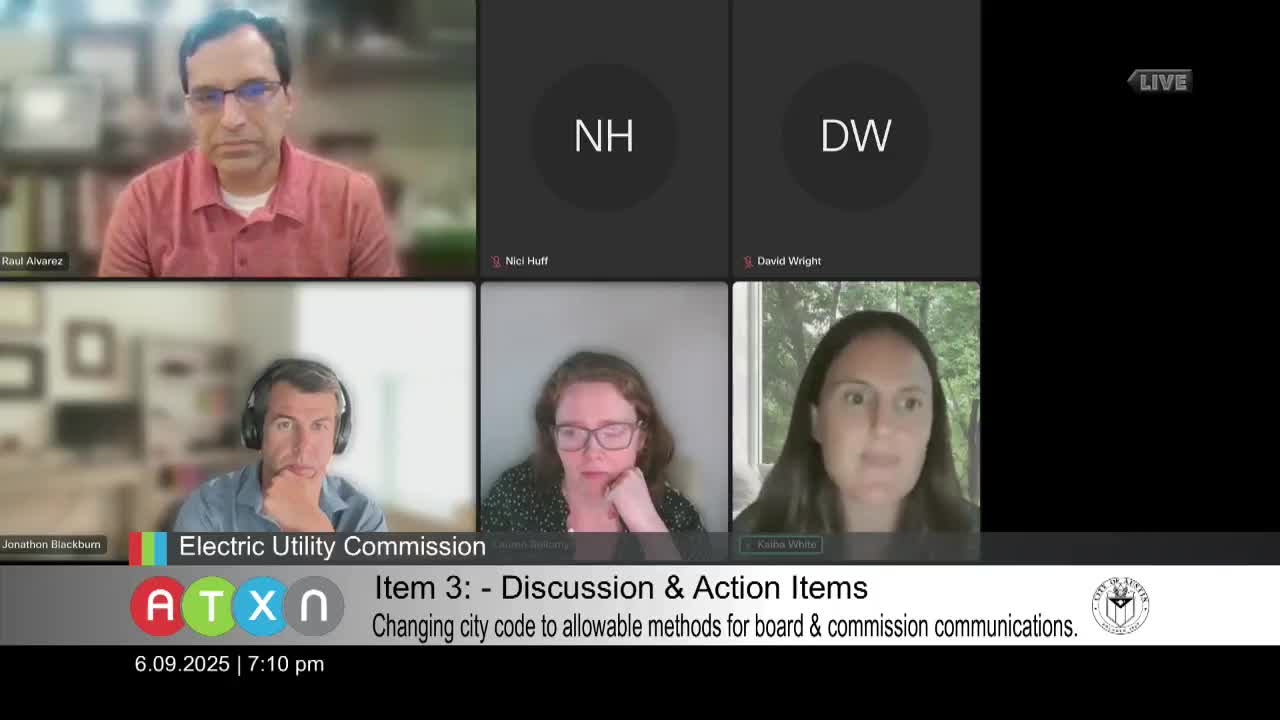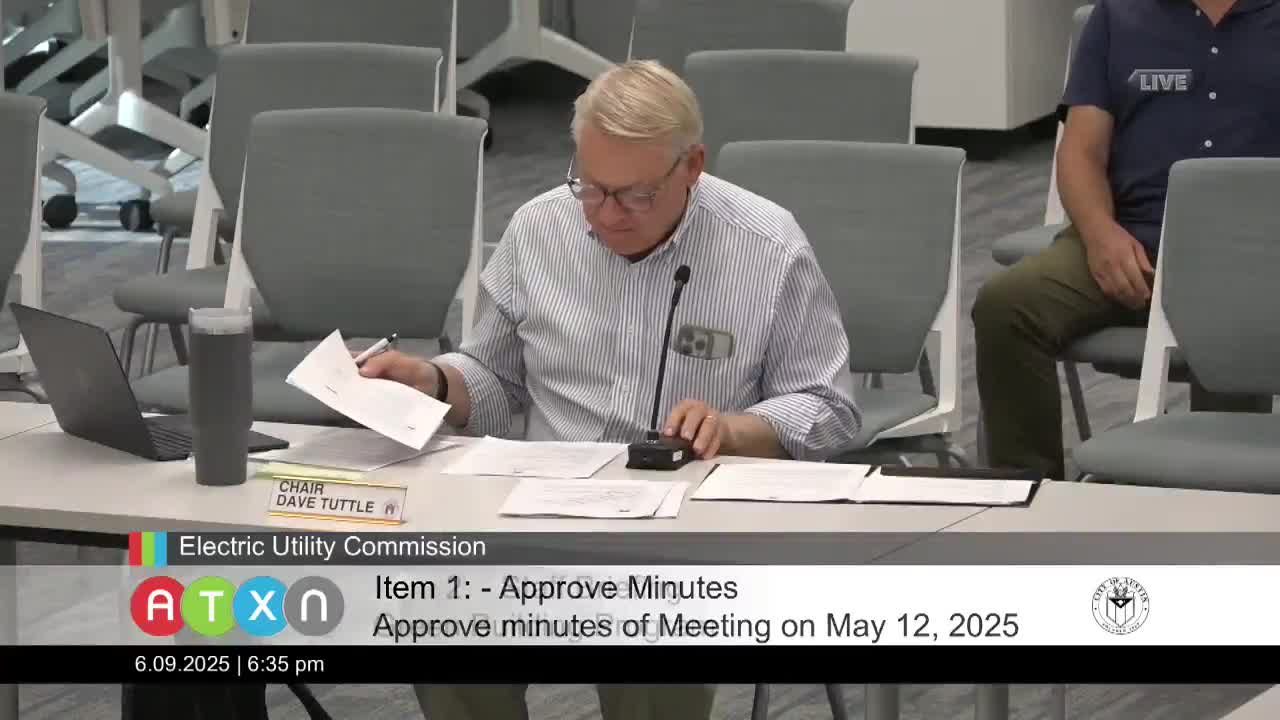Article not found
This article is no longer available. But don't worry—we've gathered other articles that discuss the same topic.

Austin commissioners hear complaints about months‑long delays connecting local solar; vendors call for harmonized metering rules

EUC votes: commission approves emailing rule recommendation, schedules meeting flexibility and recommends public forum for Austin Energy GM finalists

